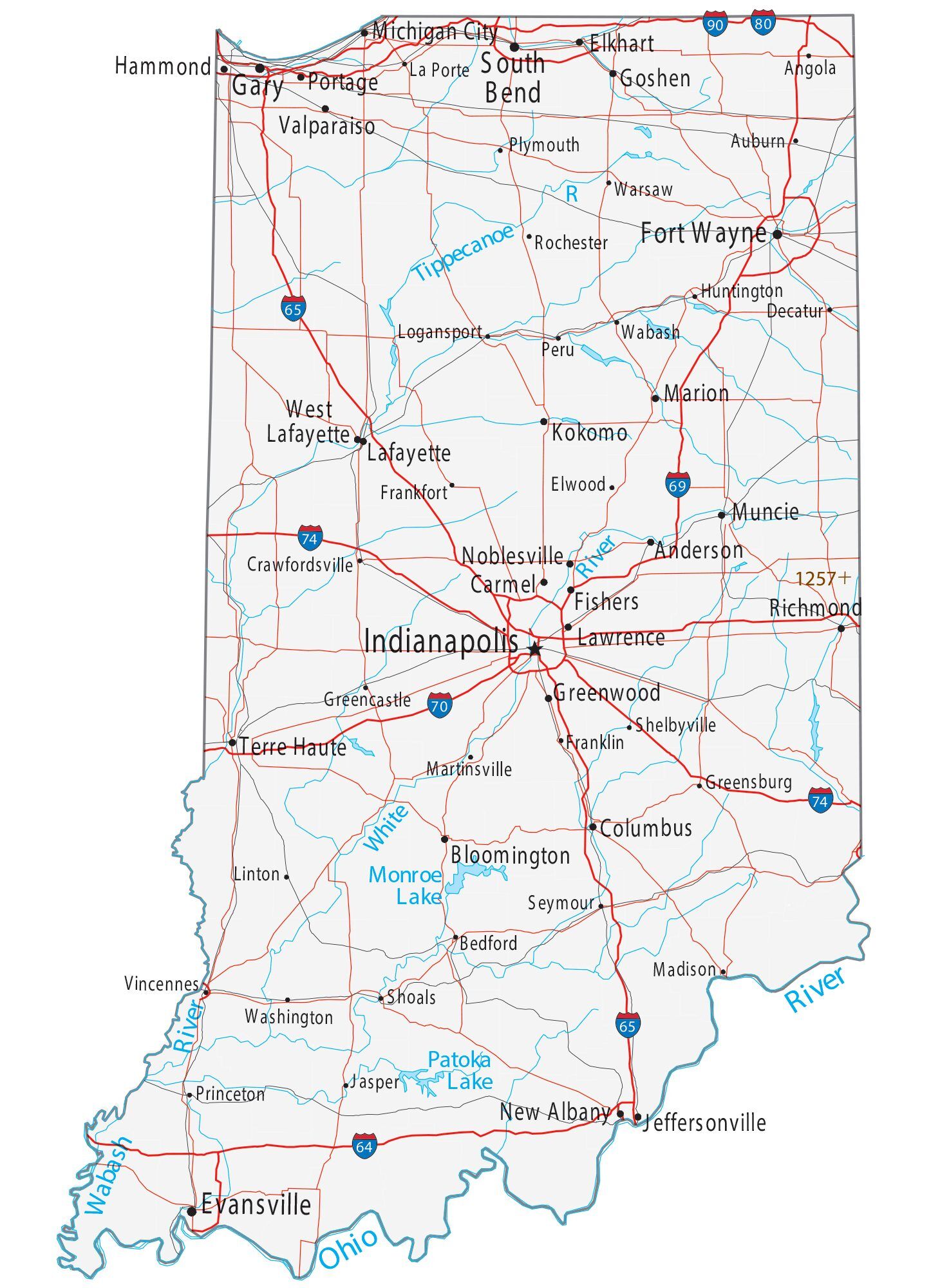Understanding Indiana septic system laws is crucial for homeowners and property owners. Complying with state regulations ensures a functioning system and protects the environment. In this guide, you’ll learn about installation permits, tank placement, wastewater disposal, compliance guidelines, costs, and helpful resources. Let’s explore everything you need to know about Indiana septic system laws step by step.
- State-Specific Regulations Information
- Compliance Information
- Cost Information
- Local Resources & Contact Information
- Supportive Resources
- FAQs about Indiana Septic Systems
State-Specific Regulations Information
Installation Permits
In Indiana, you need a permit to install a new septic system. This ensures the system complies with state health and environmental codes. The Indiana State Department of Health oversees this permit process.
- Permit Requirements: Before installation, property owners must submit an application to their local health department.
- Cost of Permits: The cost varies based on the system size and location. On average, permit fees range between $100 and $500.
- Application Process:
- Submit a detailed site plan.
- Provide soil tests and environmental assessments.
- Schedule an on-site inspection by a local health department representative.
For accurate details, visit the Indiana State Department of Health website: https://www.in.gov/isdh.
Septic Tank Size and Placement
Proper tank sizing and placement are essential to ensure a functioning system. Indiana guidelines specify the size and placement requirements to meet health and environmental standards.
- Tank Sizing:
- For a household with 2-3 bedrooms, a minimum 1,000-gallon septic tank is typically required.
- Larger households or businesses may need larger tanks (1,500 gallons or more).
- Drain Field Placement Guidelines:
- Tanks and drain fields should be placed at least 50 feet away from any water source, such as wells or streams.
- Adequate soil depth and proper drainage are crucial for optimal performance.
Consult Indiana health department guidelines to ensure compliance: https://www.in.gov/isdh.
Wastewater Disposal
Indiana’s wastewater disposal guidelines follow the Indiana wastewater code, ensuring environmental safety and public health protection.
- Disposal Rules:
- Wastewater must be properly treated in the septic system before disposal.
- It’s prohibited to discharge untreated wastewater into the environment.
- Septic systems should comply with state and local wastewater codes, ensuring proper filtration and drainage.
- Environmental Guidelines:
Protecting groundwater and nearby ecosystems is a top priority. Any discharge into rivers, lakes, or streams must meet strict environmental regulations.
For detailed wastewater management guidelines, refer to the Indiana Department of Environmental Management (IDEM): https://www.in.gov/idem.
Maintenance and Pumping
Regular maintenance and pumping keep your system in working order and compliant with Indiana health department regulations.
- Recommended Pumping Schedules:
- It is advised to pump your septic tank every 2-3 years, depending on household size and usage.
- Larger households may require more frequent pumping.
- Maintenance Requirements:
- Regular inspections help detect issues early and prevent costly repairs.
- Property owners should follow Indiana health department guidelines for optimal maintenance practices.
Learn more about system maintenance at the Indiana State Department of Health: https://www.in.gov/isdh.
Compliance Information
Potential Fines and Penalties
Failing to comply with Indiana septic system regulations can result in significant penalties.
- Fines:
- Violations can result in fines ranging from $500 to $5,000, depending on the severity.
- Penalties are usually imposed by local health departments or IDEM.
- Legal Enforcement:
- Non-compliance may result in legal action, forced system repairs, or even system shutdown.
Adhering to state regulations protects property owners from costly penalties and environmental hazards.
Visit IDEM’s Environmental Compliance section for more information: https://www.in.gov/idem.
Environmental Protections in Indiana
Indiana has stringent environmental policies to protect soil, water, and ecosystems.
- State Wastewater Management Laws:
- Systems must meet local and state wastewater management codes, which include soil testing and proper drain field placement.
- Groundwater Protection:
Preventing contamination of groundwater is a priority, with strict rules ensuring that wastewater is adequately treated.
Refer to Indiana’s Wastewater Management Division for more details: https://www.in.gov/idem.
Cost Information
Understanding the costs of septic system services helps you budget effectively. Here’s a breakdown of typical costs:
- Permit Fees
- Permit costs range between $100 and $500, depending on location and system size.
- Pumping Costs
- Pumping a septic tank typically costs between $300 and $600.
- Costs can increase for larger tanks or difficult-to-access installations.
- Installation Estimates
- Installing a new septic system costs between $5,000 and $10,000, depending on tank size, materials, and location.
- Soil assessments and installation complexity can also affect costs.
For accurate estimates, consult certified local septic service providers. Visit the Indiana State Department of Health for professional contacts: https://www.in.gov/isdh.
Local Resources & Contact Information
- Indiana State Department of Health
Address: Indiana State Department of Health
Phone: 317-233-1325
Website: https://www.in.gov/isdh - Indiana Department of Environmental Management (IDEM)
Website: https://www.in.gov/idem - Local Health Departments
- Your local health department can provide on-site inspections, permit approvals, and maintenance guidance. Check your county’s local government directory.
- Certified Septic Service Providers
Many local providers can be found online or through referrals from the Indiana State Department of Health.
Supportive Resources
- Indiana State Health Department Guides: https://www.in.gov/isdh
- IDEM Environmental Compliance Resources: https://www.in.gov/idem
- Septic System Maintenance Handbooks and Infographics – Various downloadable guides are available at these sites.
FAQs about Indiana Septic Systems
Do I need a permit to install a new septic system in Indiana?
Yes, you need an Indiana septic permit from your local health department or the Indiana State Department of Health. The permit ensures your system complies with Indiana health department guidelines and local regulations. Permit costs generally range from $100 to $500 depending on location and system size.
Learn more about permit requirements at the Indiana State Department of Health: https://www.in.gov/isdh.
What are the requirements for an IN septic tank size and placement?
Indiana regulations specify that the septic tank size must meet household capacity needs. For a 2-3 bedroom home, a minimum 1,000-gallon tank is required. The drain field placement must be at least 50 feet away from water sources like wells, streams, and rivers to protect groundwater.
Refer to the Indiana Health Department guidelines for detailed tank placement and sizing information: https://www.in.gov/isdh.
How often should I get an Indiana septic inspection?
Indiana homeowners should undergo a septic inspection every 2-3 years as part of proper maintenance. Additionally, inspections may be required before selling a property or when obtaining an Indiana wastewater permit.
The Indiana State Department of Health offers guidelines for septic inspections and system evaluations: https://www.in.gov/isdh.
What is Indiana’s wastewater code, and how does it affect my septic system?
The Indiana wastewater code outlines wastewater treatment, disposal, and discharge rules to prevent environmental contamination. This ensures proper system filtration and discharge into drain fields. Septic systems must meet state wastewater management laws to protect soil and groundwater quality.
For wastewater compliance information, visit the Indiana Department of Environmental Management (IDEM): https://www.in.gov/idem.
What happens if I don’t follow Indiana septic system regulations?
Failure to comply with Indiana septic system laws may result in legal and financial penalties. Property owners can face fines ranging from $500 to $5,000, system shutdowns, and costly repair mandates. Local health departments and IDEM strictly enforce these regulations to ensure environmental protection.
For details on compliance and enforcement, visit the IDEM Environmental Compliance Division: https://www.in.gov/idem.
Where can I find certified septic service providers in Indiana?
The Indiana State Department of Health maintains a list of certified septic service companies and professionals. You can contact these professionals for installation, pumping, and maintenance needs. Local health departments can also provide referrals to reputable, state-certified septic service providers.
Visit Indiana State Department of Health to find a certified service provider: https://www.in.gov/isdh.
How much does septic system maintenance cost in Indiana?
In Indiana, septic maintenance costs include various services:
- Pumping Costs: Typically between $300 and $600.
- Permit Fees: Usually range from $100 to $500.
- Installation Costs: Can range from $5,000 to $10,000, depending on system size and location.
For accurate estimates, contact local septic service companies, which can provide customized quotes.
Visit Indiana Department of Environmental Management for more details: https://www.in.gov/idem.
Are there environmental protections specific to Indiana’s wastewater management?
Indiana prioritizes environmental safeguards, ensuring that septic systems meet state wastewater management laws. These guidelines protect groundwater quality, nearby ecosystems, and soil health, ensuring sustainable wastewater disposal.
For environmental protection compliance, refer to IDEM: https://www.in.gov/idem.
How can I get a downloadable guide or handbook about Indiana septic system care?
Various resources, such as guides and handbooks provided by the Indiana State Department of Health, can help you maintain your system. These include downloadable checklists and compliance handbooks outlining proper installation, maintenance, and troubleshooting procedures.
Access these resources here: https://www.in.gov/isdh.
DIY Repairs Are Always Cheaper
Septic Regulations in Rural Areas: Essential Guide for Rural Property Owners
The Role of Perforated Pipes in Drain Fields
What Happens During a Pumping Service?
Septic Tanks vs. Sewer Systems | Choosing the Right Option
Directory | Virginia Septic Service Providers | Part 2







